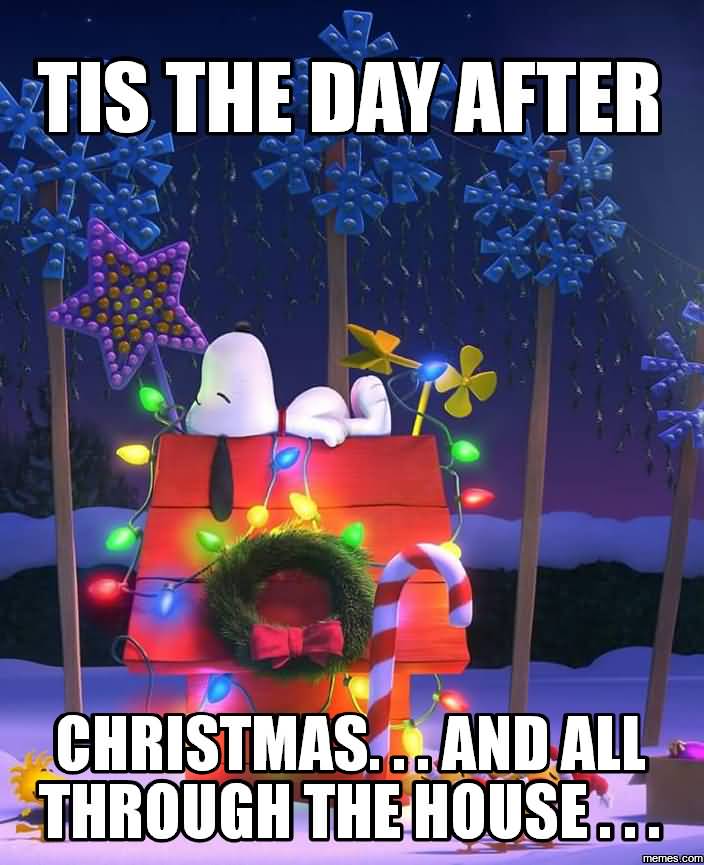6: The Day After Christmas

Question: 'What is Epiphany / Three Kings’ Day and should Christians celebrate it?'
Answer:
Despite their name, After Christmas sales can start before Christmas itself. In 2018, we saw the first of these events pop up on December 21. Last year, however, the first sale we saw arrived on December 25. Because Black Friday sales began so early this year, we wouldn't be surprised to see post-Christmas sales kick off before Christmas once. “Christmas trees, lights, decor, wrapping paper, and more will all be 50% to 75% off within a few weeks after Christmas,' says Crystal Paine of MoneySavingMom.com. 'Buying ahead for next year. But like today, Pepys held that 6 January marked the final day of celebrations. 'This night making an end wholly of Christmas,' he wrote on 6 January 1663. Overclocking loungealienware user support tool. More than 350 years later, many modern. One idea is that December 26 was the day centuries ago when lords of the manor and aristocrats typically distributed “Christmas boxes” often filled with small gifts, money and leftovers from.
Epiphany is an ancient church festival celebrating the magi’s visit to the Christ Child (Matthew 2:1-12). It is kept on January 6. Epiphany is also called “Three Kings’ Day” and “Twelfth Day”—the latter name because January 6 is twelve days after Christmas; the eve of Epiphany is called “Twelfth Night.” It is celebrated mainly in Orthodox, Catholic, Anglican, and other liturgical churches.The word epiphany means “manifestation” or “revelation.” Thus, the holiday celebrates the manifestation of Christ to the Gentiles, represented by the magi (see Simeon’s prophecy in Luke 2:32). For some, Epiphany also commemorates the baptism of Jesus (Luke 3:21-22) and His turning water into wine (John 2:1-11)—manifestations of Christ’s divinity to the world.
Many traditions surround Epiphany celebrations, which vary from culture to culture. Customs include the Star Singers (children dressed as kings and holding up a large star, singing carols from house to house); collecting money for charity; and the “plundering” and burning of Christmas trees. In the French Catholic culture, Epiphany marks the beginning of Mardi Gras, as “king cakes” are baked and served.
Day After Christmas Sell
 Other traditions include prayers (some offered to “Caspar,” “Melchoir,” and “Balthasar,” the traditional names of the magi); the blessing of holy water; the burning of “blessed” herbs; and the offering of gold, frankincense, and myrrh.
Other traditions include prayers (some offered to “Caspar,” “Melchoir,” and “Balthasar,” the traditional names of the magi); the blessing of holy water; the burning of “blessed” herbs; and the offering of gold, frankincense, and myrrh.6: The Day After Christmas Decorations
Should a Christian celebrate Epiphany? There is certainly nothing wrong with celebrating the different events of Christ’s life, and a Christian is free to observe whatever day he wants, as long as he “does so to the Lord” (see Romans 14:4-6).Having said that, we should be careful to avoid the superstitions and empty rituals (Isaiah 1:13-14) which have sprung up around many holidays, including Epiphany. Sprinkling “holy” water, for example, and burning “blessed” herbs are nothing but superstitious practices. And some customs directly conflict with scripture. For instance, asking the magi to bless one’s house conflicts with the Bible’s clear teaching that we pray only to God Himself (Psalm 91:15; Matthew 6:6, 9; 1 Timothy 2:5).
Whatever holidays we choose to observe, the Lord should always be glorified in them; however our calendars are marked, the Bible must remain our only rule for faith and practice.
